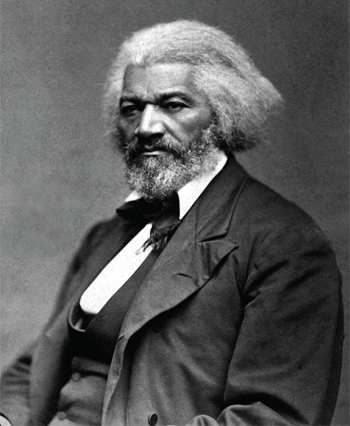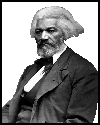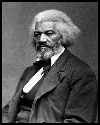 Frederick Douglass, born Frederick Augustus Washington Bailey around February 1818 in Talbot County, Maryland, was a prominent American social reformer, abolitionist, orator, writer, and statesman. Born into slavery, Douglass's early life was marked by hardship, but he became one of the most influential figures in the fight against slavery and for civil rights in the United States.
Frederick Douglass, born Frederick Augustus Washington Bailey around February 1818 in Talbot County, Maryland, was a prominent American social reformer, abolitionist, orator, writer, and statesman. Born into slavery, Douglass's early life was marked by hardship, but he became one of the most influential figures in the fight against slavery and for civil rights in the United States.
Douglass's quest for freedom began in earnest when he learned to read and write, largely through his own determination and the help of others. These skills opened his mind to new ideas and fueled his desire for liberty. In 1838, he escaped from slavery by disguising himself as a sailor and fled to New York, where he adopted the surname Douglass.
His remarkable journey from enslavement to freedom and his powerful eloquence soon made him a key figure in the abolitionist movement. In 1845, he published his first autobiography, Narrative of the Life of Frederick Douglass, an American Slave, which became a bestseller and highlighted the brutal realities of slavery. This work, along with his compelling speeches, established him as a leading voice against slavery.
Douglass was also a staunch advocate for women's rights and attended the Seneca Falls Convention in 1848, supporting the cause of women's suffrage. During the Civil War, he worked tirelessly to recruit African American soldiers for the Union Army and met with President Abraham Lincoln to advocate for the rights of black soldiers and the abolition of slavery.
After the war, Douglass continued to fight for equality, holding various public offices, including U.S. Marshal and Recorder of Deeds for the District of Columbia, and Minister Resident and Consul General to Haiti. He remained an influential figure until his death on February 20, 1895.
Frederick Douglass's legacy is profound; his life and work continue to inspire the ongoing struggle for justice and equality. His eloquence, bravery, and unwavering commitment to human rights have left an indelible mark on American history.
|
 Frederick Douglass, born Frederick Augustus Washington Bailey around February 1818 in Talbot County, Maryland, was a prominent American social reformer, abolitionist, orator, writer, and statesman. Born into slavery, Douglass's early life was marked by hardship, but he became one of the most influential figures in the fight against slavery and for civil rights in the United States.
Frederick Douglass, born Frederick Augustus Washington Bailey around February 1818 in Talbot County, Maryland, was a prominent American social reformer, abolitionist, orator, writer, and statesman. Born into slavery, Douglass's early life was marked by hardship, but he became one of the most influential figures in the fight against slavery and for civil rights in the United States. 










